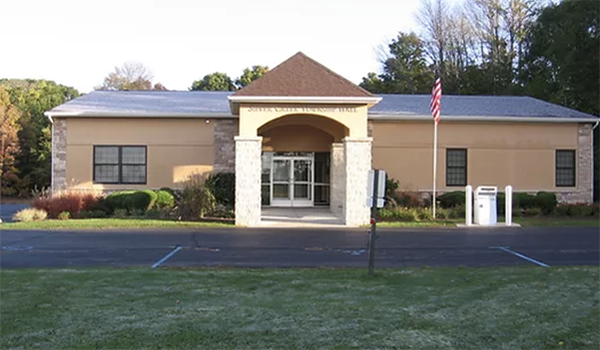Dowagiac mayor among 18 leaders who filed suit against state of Michigan
Published 9:30 am Wednesday, January 27, 2016

Dowagiac Mayor Don Lyons announces his participation in a lawsuit against the State of Michigan Tuesday at a press conference hosted by the Michigan Municipal League in Michigan. Lyons and 17 other leaders from around Michigan are plaintiffs in a suit that opposes the constitutionality of the so-called “gag order” provision of the recently enacted Public Act 269. (Submitted photo)
Dowagiac’s top elected leader is taking his and the rest of the local government’s opposition of the state’s recently enacted “gag order” for communications about pending ballot proposals to the next level.
Mayor Don Lyons joined 17 other city, county and school officials from across Michigan on the list of plaintiffs in a lawsuit filed in U.S. District Court Tuesday against Secretary of State Ruth Johnson and the State of Michigan. The lawsuit, which was prepared and filed by attorney Scott Eldridge with Miller, Canfield, Paddock and Stone, challenges the constitutionality of Subsection 57(3) of Public Act 269, which states that elected and appointed public and school officials cannot use public funds to disseminate information about pending ballot proposals via radio, television, mass mailing or prerecorded telephone messages 60 days prior to an election.
This provision became part of Michigan law earlier this month, after Gov. Rick Snyder signed Senate Bill 571 into law, which then became Public Act 269. The language pertaining to communication over ballot issues was added to SB 571 shortly before its passage, giving many municipalities — including Dowagiac — little time to react.
For the city, this new act has presented a unique problem, as a ballot proposal asking voters as to whether or not to change the position of city clerk from an elected to appointed position will go before the public during the March 8 primary election. While the city had prepared informational packets about the issue for distribution via its monthly newsletter or with city utility bills, releasing these materials could now result in officials being charged with a misdemeanor under PA 269, Lyons said.
“If I were to perform my duty as I have performed it over the last 18 years, I would be subject to a fine, jail sentence…all just because I tried to do my job,” Lyons said in a press conference hosted by the Michigan Municipal League, a supporter of the lawsuit. “This law, PA 269, strips away or brings into question the legality of many of the most effective means of communication that we have traditionally used.
“For a community that values transparency, the removal of some of our most effective means of communicating with our electorate by a poorly crafted and confusing piece of last-minute legislation is simply wrong. It is a sad day when the state legislature tells me that I can no longer communicate effectively with the people I was elected to serve.”
The city’s use of newsletters and other mass mailing methods is particularly essential to the Dowagiac community, as some residents lack access to the Internet or other ways to learn facts about pending decisions, Lyons said.
“It’s our great hope and expectation that we will prevail in this legal action, and that Public Act 269, as it is currently in existence, will be modified so that we can once again engage in effective communication with our constituents,” Lyons said.






